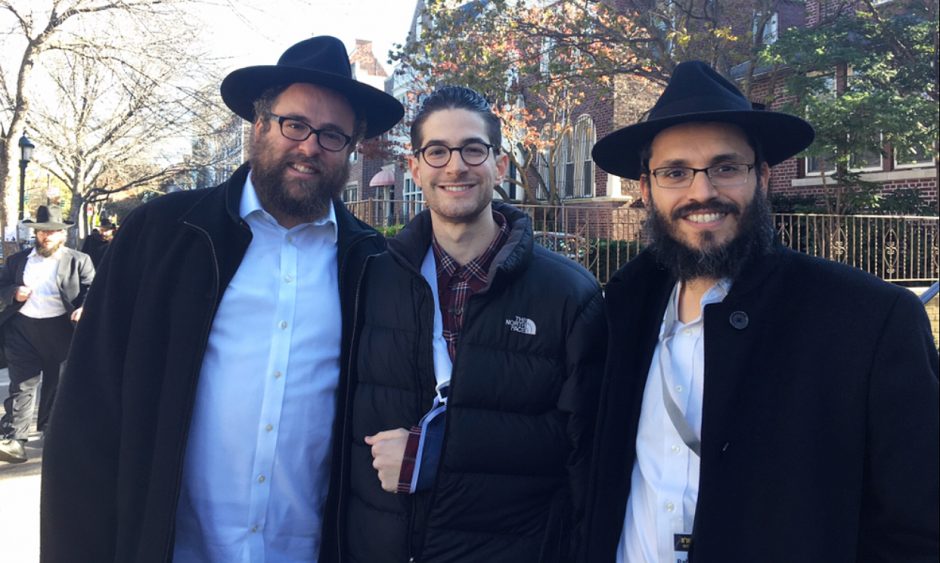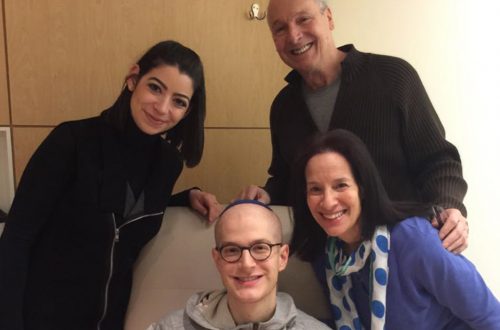Last week my Rabbi from college, Rabbi Oirechman, sent out his Weekly Torah Portion email on Parsha ‘Shemot.’ He beautifully tied in my current situation into his thoughts:
Why do bad things happen to good people?
Dear Friends,
Why do bad things happen to good people? How is one of our alumni personally dealing with cancer?
There is a famous question that many of us ask. We want to know ‘why bad things happen to good people’. In English, this is known as the question of theodicy.
Well, neither you nor I originated this question.
At the end of last week’s Torah portion of ‘Shemot’, after Moshe Rabbeinu is sent by Hashem to Pharaoh to redeem the Jewish people. Not only does Pharaoh not listen (as Moshe had foreseen) but he even makes it worse for the Jewish people. Until then straw was provided for them, but after Moshe’s conversation with Pharaoh they must gather their own straw and still provide the same quantity of bricks at end of the day.
The Jewish people complain to Moshe and Moshe turns to G-d saying, “Why have you dealt badly with your people”? In modern-day formulation, this reads as “Why are these bad things happening to your good people?”
G-d answers the question in this week’s portion ‘Vaeira’ and tells Moshe that the patriarchs had greater faith, that He tested them and they didn’t ask questions. Then He tells Moshe that He heard the cries of the Jewish people and will take them out of Egypt with great wonders.
Chassidus explains that Moshe represents the wisdom needed to understand cognitive dissonance but G-dliness is a phenomenon that cannot be completely understood.
An interesting point here is that G-d tells him that it was not wrong to question G-d. The fact that the question is actually recorded in the Torah teaches us that it is fine to question G-d, to try to understand, and to request from Him that he provide the world with revealed goodness in practice in preference to delayed or indirect theoretical goodness. However, it is not proper to conclude that because we have questions to ask of G-d to which we do not receive direct and verifiable answers that He is not involved in this world that He created.
That is the point we need to learn from this Torah portion.
G-d is deeply involved in every aspect of His creation and He is with us at good times and times we may think of as bad (but may really be better than times). There are many explanations of why the righteous suffer and the wicked prosper.
For example: G-d is testing them, He has greater rewards for them later or in the world to come and so on.
We may never fully understand and know why in any particular instance.
However, it is important for us to know that everything comes from G-d, the good, the bad and the ugly as we currently perceive them. When G-d told Jacob to go down to Egypt, He said He would go down with Jacob and He would go out of there with Jacob (Israel).
This is a message for us that G-d is with us in our suffering and just that fact comforts our souls.
One of our FSU alumni is currently dealing with cancer and the painful side effects of the treatments. We study Torah together almost daily. This week, the day before his treatment, we discussed theodicy. The day of the treatment when we studied afterward he told me that today’s treatment was very different than all the other ones. Usually, he goes in fighting reality but our prior discussion had an impact on his thoughts and perspective on painful side effects and caused them to be less intense and discouraging.
Today, he told me that he was thinking about the subjects we study and felt that G-d is with him, he is here on this Earth for a purpose. The resulting reduction in fear caused him to react much better to the treatment. He even wrote an article about it, click here to read.
Whatever we go through in our lives, we need to realize that G-d is with us and He suffers in a certain sense when we suffer. And there is a purpose for this. We obviously pray and ask that He remove our suffering, but we continue to feel that we are not alone even if we do not get the answer to why some things happen in this world.
Studying Torah helps us manage the many struggles in our lives and gives us the comfort we need at challenging times.
But, even better, pray for Moshiach to come and then there will be a final end to our suffering.
We want Moshiach Now!
Wishing you Shabbat Shalom.
Rabbi Schneur Z Oirechman




